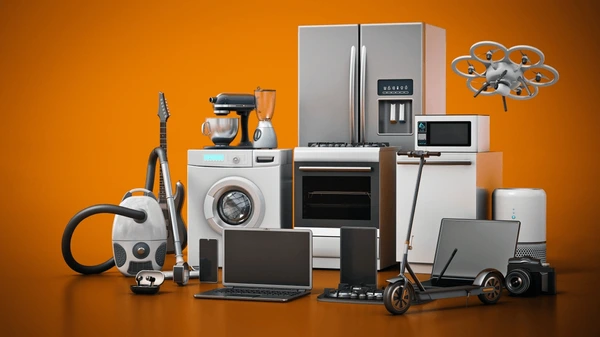The Energy Commission has announced the full enforcement of nineteen Legislative Instruments (L.I.s) passed by Parliament to regulate the importation, sale and manufacture of electrical appliances and renewable energy products in Ghana.
In a statement issued by the Commission, it reaffirmed its mandate under the Energy Commission Act, 1997 (Act 541), emphasizing that the new regulatory framework is designed to sanitise the domestic market and safeguard public interest.
According to the Commission, Parliament’s approval of the nineteen L.I.s marks a decisive step toward ensuring that only efficient and environmentally friendly appliances are allowed into the country.
The regulations, which came into force on 2nd November 2022, completed a one-year moratorium in November 2023, enabling manufacturers, importers and retailers to adjust to the new standards.
The Commission explained that the regulations were introduced to address growing concerns about substandard electrical products on the Ghanaian market.
It noted that the primary aim is “to prevent Ghana from becoming a desirable destination for both new but substandard and used appliances,” a situation that has historically contributed to high electricity consumption and frequent equipment failures in homes and businesses.
Wasteful energy use, the Commission added, places unnecessary pressure on the national grid and increases the cost of power generation.
It stressed that cutting waste will help the nation avoid additional fuel costs associated with procuring new power plants just to meet inefficiencies.
The Energy Commission also underscored the environmental benefits of the reforms. According to the statement, reducing energy waste directly contributes to lowering emissions from thermal power plants, a critical measure as Ghana strengthens its commitment to environmental protection and climate-friendly policies.
It added that the regulations are equally aimed at protecting consumers by ensuring they do not unknowingly purchase energy-inefficient appliances that lead to inflated electricity bills.
“The regulations will protect the consumer from purchasing energy inefficient appliances and prevent the payment of unnecessary high electricity bills.”
Energy Commission
Wide Range of Products Now Under Mandatory Standards

The nineteen Legislative Instruments cover a broad category of appliances and renewable energy equipment that form part of everyday household and industrial use.
These include washing machines, computers, microwave ovens, public lighting systems, refrigerating appliances, electric motors, electric kettles, air conditioners and distribution transformers. Others address comfort fans, industrial fans, set-top boxes and rice cookers.
Complementing these are new standards for renewable energy products. Solar panels, renewable energy batteries and inverters are now regulated under dedicated L.I.s to ensure their quality and durability.
With the growing adoption of solar solutions across homes and businesses, the Commission says the oversight is essential to protect consumers from substandard products that underperform or quickly deteriorate.
These requirements are supported by mandatory labelling systems that will help buyers make informed choices based on energy performance.
Retailers will be obligated to display approved labels, while importers and manufacturers will be required to meet minimum efficiency benchmarks before placing products on the Ghanaian market.
“The Commission, therefore, urges the general public particularly importers of electrical appliances and prospective manufacturers to take note.”
Energy Commission
It emphasized that the purpose of the one-year moratorium was to provide enough time for businesses to align their operations with the required standards and ensure a smooth implementation.
The regulatory body is expected to collaborate with key state institutions including the Ghana Standards Authority, Customs Division of the Ghana Revenue Authority and the Environmental Protection Agency to ensure uniform compliance across all entry points and retail markets.
A Major Step Toward Energy Efficiency

The introduction and enforcement of these nineteen Legislative Instruments represent one of the most comprehensive appliance and renewable energy regulatory frameworks in Ghana’s history.
As the country continues its transition toward sustainable growth, the Energy Commission believes the regulations will provide long-term benefits including reduced national electricity demand, lower consumer costs and improved environmental outcomes.
With Ghana’s energy needs increasing alongside urban growth and industrial expansion, the Commission argues that enforcing efficiency standards is not merely an administrative step but a crucial national policy direction aimed at ensuring a reliable, affordable and environmentally responsible energy future.
READ ALSO: Dr. Baffour Called for Sustained Economic Stability to Redeem the ‘Familiar Budget Trend’























